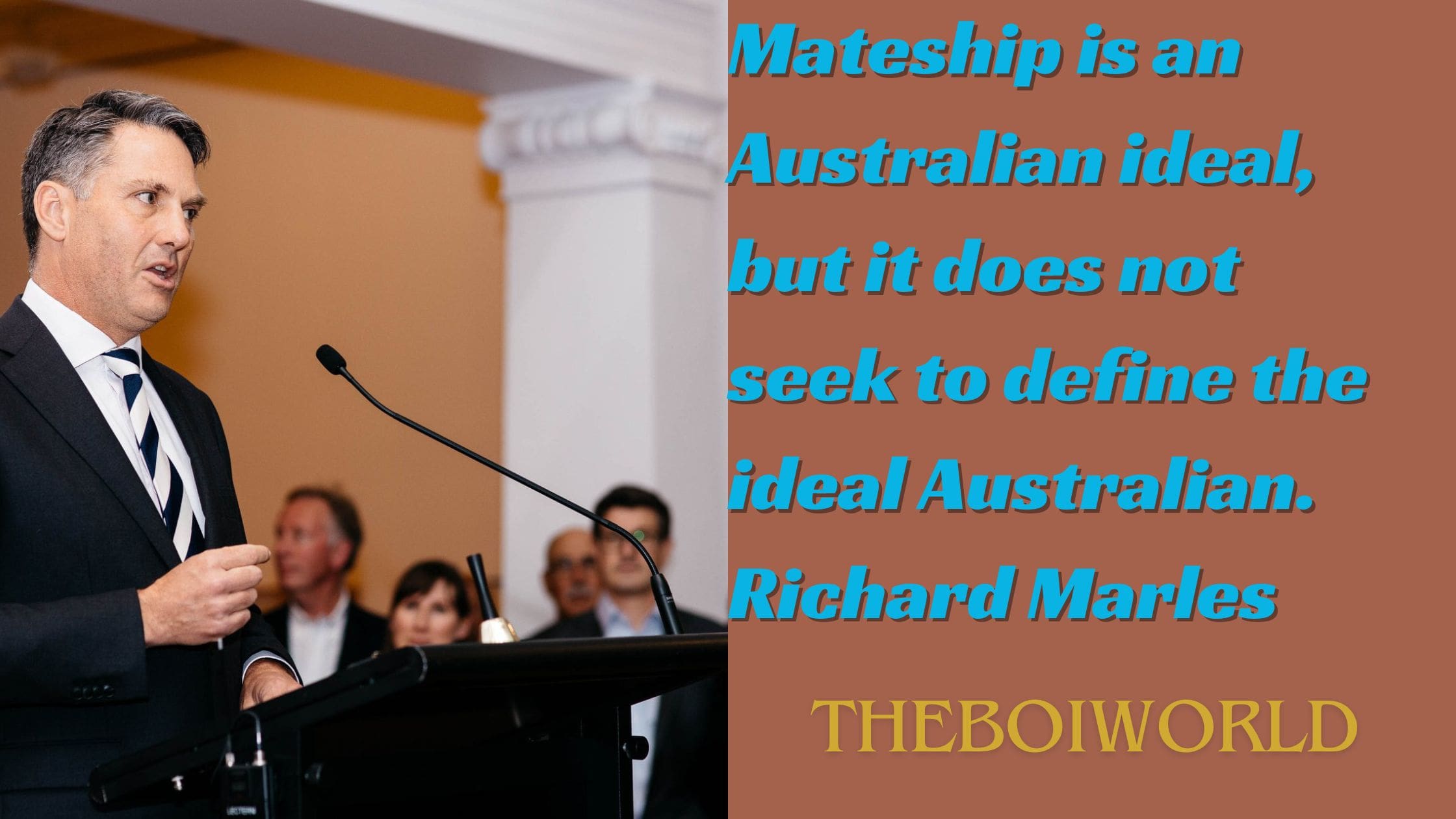“Biography of Richard Merles”

Introduction :
Hello Friends Today i will talk about the inspiring Biography of Richard Marles who is An Australian politician.
Besically he known for his significant contributions to the country. Richard Marles a Prominent and iconic face in Australia.
so if you are searching the life story of Richard Marles the be stuck here because you came on The right site.
Early Life:
Richard Marles was Born on 13 July 1967 in Geelong, victoria and his father was Donald Marles and mother was Fay Marles.
Richard Marles experienced a typical and joyful childhood in Australia. he grew up surrounded by the warmth of his family.
Educational Background:
Richard Marles got his education with dedication and focus. After completing his early schooling he delved into the field of law showcasing a keen interest in legal studies.
He attended a reputable institution where he Got his skills and gained a comprehensive understanding of the legal framework.
Personal Life:
Richard Marles married to Rachel Schutze and Catherine and They shared three child. And his first wife who was elected to the assembly in 2002 and later became a state minister.
Early career:
Richard Marles embarked on his early career with a commitment to public service and a focus on law.
To Following his legal education he entered the workforce possibly gaining practical experience in legal practice along with political activities.
Merles showcased his dedication to justice and advocacy. and also did groundwork for his future role as a political figure. which built a reputation for integrity and a commitment to serving the community to grow in Australian politics.
Political career:
Deputy Leader of Opposition Party:
In May 2019 subsequent to the Labor Party’s defeat in the 2019 federal election and Richard Marles become candidate for the deputy leadership.
Marles was poised to be elected but Formally endorsed as the deputy to Anthony Albanese on May 30. he concurrently assumed the role of Shadow Minister for Defence within the shadow cabinet.
Trade Minister And parliament Secretary:
In June 2009 Richard Marles assumed the role of Parliamentary Secretary for Innovation and Industry.
He Successfully retaining his seat in the 2010 election, he was subsequently sworn in as Parliamentary Secretary for Pacific Island Affairs in the First Gillard Ministry on 14 September 2010.
Again Marles made history in July 2011 as the first Australian parliamentarian to visit Wallis and Futuna commemorating the islands’ 50th anniversary as a French Overseas collectivity.
Again on 2 March 2012 Marles took on the additional responsibility of Parliamentary Secretary for Foreign Affairs.
But on 21 March 2013 he resigned from these roles to expressing support for Kevin Rudd’s leadership challenge against Julia Gillard which ultimately did not transpire.
Again a moment came in June 2013 that Marles appointed as the Minister for Trade and a Cabinet member to succeeding Craig Emerson.
Role Of Deputy Prime Minister:
In the 2022 federal election just two days later Anthony Albanese along with Richard Marles and three other senior Labor frontbenchers were sworn in to form an interim five-person government. With ongoing vote counting indicating no realistic chance for any other party to secure a minority government.
the transfer of power was expedited particularly in light of the upcoming Quadrilateral Security Dialogue. The full ministry was scheduled to be sworn in after the Quad.
Given Albanese’s participation in the Quad in Tokyo Marles assumed the role of Acting Prime Minister during this period.
This arrangement persists whenever Albanese leaves the country, highlighting Marles’ role in leading the nation in the absence of the Prime Minister.
Also Read: https://theboiworld.com/chief-justice-richard-wagner-legal-legacy/
Conclusion:
In conclusion, Richard Marles’ role in the interim government following the 2022 federal election, coupled with his responsibilities as Acting Prime Minister during the Quadrilateral Security Dialogue underscores his significant contributions to Australia’s politics.
The transparency challenges surrounding the cost of VIP flights, as reported in August 2023 reflect the ongoing importance of accountability and public scrutiny in political leadership.
As the nation navigates political transitions and global engagements Marles’ position as a key figure in these pivotal moments shapes the narrative of Australian governance.
The complexities of balancing security concerns with transparency further highlight the intricacies inherent in contemporary political leadership.
Written By: Shalik khan








